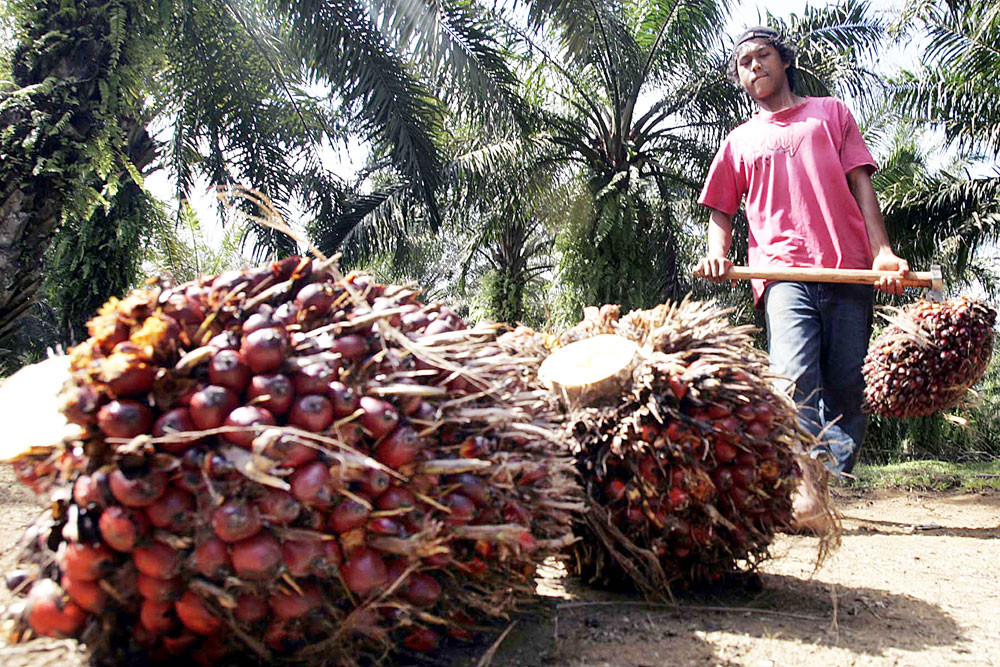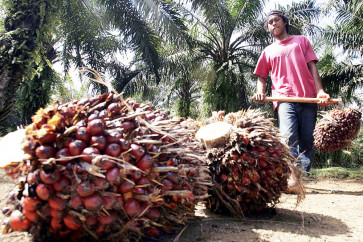Popular Reads
Top Results
Can't find what you're looking for?
View all search resultsPopular Reads
Top Results
Can't find what you're looking for?
View all search resultsPalm oil companies still underestimate deforestation risks, survey shows
Only 33 companies, or a third, reported the potential financial impacts associated with substantive deforestation risks in 2019, representing US$4.9 billion in losses if risks are not managed.
Change text size
Gift Premium Articles
to Anyone
C
ompanies in the palm oil sector are still mostly underestimating their deforestation risks, compounded by the lack of transparency among upstream companies in the supply chain, according to a new study conducted by global environmental non-profit organization CDP.
CDP’s new report “The Palm Book: Tracking progress on sustainable palm oil commitments in Indonesia” indicates that 89 percent of companies are reporting deforestation risks, but not enough are committing to sustainable palm oil production in Indonesia.
The report is based on self-reported data from nearly 100 companies that produce, source or use products made with Indonesian palm oil. It indicates that a significant number of companies still don’t report the financial impact of their risks. Only 33 companies, or a third, reported the potential financial impacts associated with substantive deforestation risks in 2019, representing US$4.9 billion in losses if risks are not managed.
As many as 96 companies reported producing or sourcing palm oil – or products containing palm oil – from Indonesia, representing a 20 percent increase from 80 companies in 2018 and an incredible 50 percent growth from 64 companies in 2017, CDP said in a press release issued on Nov. 15.
With reputational risk (67 percent) continuing to be the most frequently reported risk, companies sourcing palm oil from Indonesia are underestimating the physical (20 percent) and regulatory risks (19 percent) in their operation. Alarmingly, more than 10 percent of companies still don’t consider deforestation in their risk assessments.
“As the impacts of deforestation become an increasing concern to consumers and investors worldwide, the true level of companies’ commitment will be tested. Moving forward, more ambition and robust implementation that cover more entities and larger geography are critical to achieving the no-deforestation commitment post-2020,” said Morgan Gillespy, the global director for forests at CDP.
The lack of transparency is the main challenge in assessing the contribution of commitments from the private sector. Despite the increase in the number of companies reporting on their use of Indonesian palm oil, disclosures are still dominated by manufacturers and retailers located in North America and Europe, the report said.


















